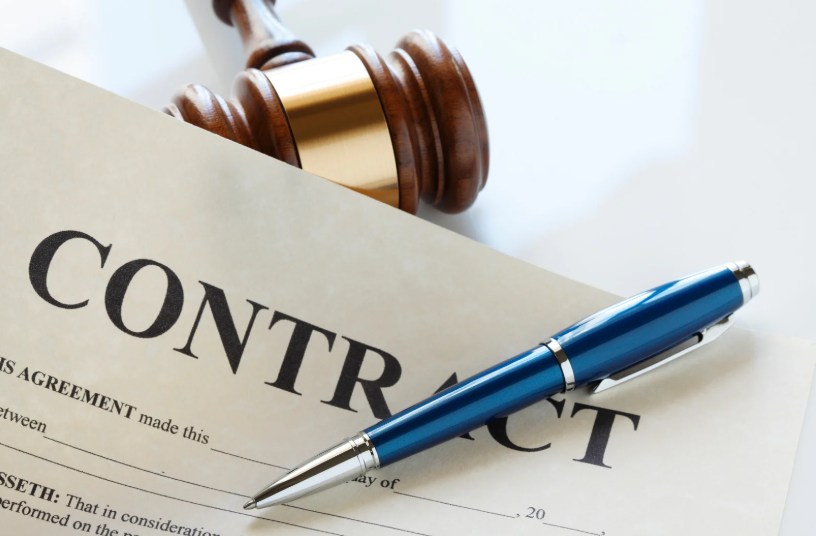
Contracts form the foundation of many business transactions, but disputes can arise when one party fails to fulfill their obligations. If you’re facing a breach of contract claim in Texas, understanding the breach of contract defenses available to you can be the key to protecting your interests. Texas law provides a variety of defenses, ranging from issues in contract formation to challenges in contract enforcement.
This guide explores common contract law defenses, helping you navigate your options and avoid costly consequences.
What Is a Breach of Contract?
A breach of contract occurs when one party fails to perform their duties as outlined in an agreement. This can include failing to deliver goods, refusing to pay for services, or violating other terms of the contract. While the non-breaching party may seek damages or enforcement, the accused party can raise contract defense strategies to challenge the claim.
Common Defenses to Contract Formation
For a contract to be enforceable, it must meet specific legal criteria during its formation. Defenses to contract formation focus on whether a valid agreement was created.
1. Lack of Capacity
A contract is invalid if one party lacked the legal capacity to enter into it. Lack of capacity can arise in cases involving:
- Minors: Contracts with minors are often voidable unless they involve necessities like food or housing.
- Mental Incapacity: A person who cannot understand the nature of the agreement due to mental illness or intoxication may lack capacity.
2. Lack of Consideration
Contracts require consideration—something of value exchanged between the parties. If one party does not provide consideration, the agreement may be unenforceable.
3. Duress
If a party was forced into the agreement through threats, coercion, or undue pressure, they may raise duress as a defense. To succeed, the party must prove the threat was unlawful and left them with no reasonable alternative.
4. Misrepresentation or Fraud
If one party was misled into entering the contract through false statements or intentional deception, they may argue the contract is invalid. Fraud occurs when:
- A false statement is made.
- The false statement is material to the agreement.
- The misled party relied on the false statement when agreeing to the terms.
5. Mistake
Mistake occurs when both parties misunderstand a fundamental fact about the contract. Mutual mistakes, where both parties share the same incorrect belief, can render a contract voidable.
Defenses to Contract Enforcement
Even if a valid contract exists, certain defenses can prevent its enforcement.
1. Illegality
Contracts involving illegal activities are void and unenforceable. For example, an agreement to perform an action prohibited by law, such as selling counterfeit goods, would not be upheld in court.
2. Unconscionability
A contract may be unenforceable if it is so one-sided or oppressive that it shocks the conscience. This often involves situations where one party had significantly more power during negotiations.
3. Statute of Frauds
Under Texas law, certain contracts must be in writing to be enforceable. These include:
- Contracts for the sale of real estate.
- Agreements that cannot be completed within one year.
- Promises to pay another person’s debt.
If a contract does not meet these criteria, a party can raise the Statute of Frauds as a defense.
4. Impossibility or Impracticability
If unforeseen circumstances make performance impossible or unreasonably difficult, a party may be excused from their obligations. Examples include:
- Natural disasters destroying the subject matter of the contract.
- Changes in law making the agreement illegal.
5. Force Majeure
Many contracts include force majeure clauses, which excuse performance due to extraordinary events beyond the parties’ control, such as pandemics or government lockdowns.
Defenses for Breach of Contract

When accused of breaching a contract, the following defenses may apply:
1. Failure of Consideration
If the other party did not fulfill their obligations under the agreement, you may argue failure of consideration as a defense. For instance, if they failed to deliver promised goods, your obligation to pay may be void.
2. Repudiation
If the other party clearly and unequivocally indicates they will not fulfill their contractual obligations, you may use repudiation as a defense. Repudiation excuses your performance and allows you to seek damages.
3. Prior Breach
If the other party breached the contract first, their claim against you may be invalid. This defense is especially strong if the initial breach was material and affected your ability to perform.
4. Waiver or Consent
If the other party knowingly waived their right to enforce certain terms or explicitly consented to non-performance, they cannot later claim a breach.
How to Prove a Contract Defense
To successfully assert a defense to contracts, you must provide evidence supporting your claim. Key steps include:
- Documenting Events: Keep records of all communications, agreements, and actions related to the contract.
- Identifying Legal Violations: Point out specific breaches, illegalities, or oppressive behavior in the contract.
- Providing Witness Testimony: Witnesses who observed the circumstances surrounding the contract can strengthen your case.
Consulting a qualified attorney is essential to building a solid defense.
Importance of a Contract Defense
Raising valid defenses in contract law can:
- Protect you from financial liability.
- Ensure fairness in enforcement.
- Uphold your rights if you were coerced or misled into the agreement.
Ignoring these defenses could result in unfavorable outcomes, such as being held liable for damages or forced to comply with unfair terms.
How a Skilled Contract Attorney Can Help
Contract disputes can be legally complex and financially significant. Working with an experienced attorney ensures:
- Accurate Legal Analysis: Your lawyer will evaluate the contract and determine which defenses apply.
- Effective Negotiation: Attorneys can help you resolve disputes without going to court.
- Strong Representation: If litigation is necessary, your attorney will advocate for you at every step.
How Roquemore Skierski Business Lawyer Can Help

At Roquemore Skierski Business Lawyer, we specialize in contract law defenses and breach of contract cases. Whether you’re facing claims of non-performance or seeking to enforce your rights, we provide tailored legal strategies to protect your interests.
Contact Roquemore Skierski Business Lawyer today to discuss your case and learn how we can help resolve your contract dispute effectively and efficiently.

